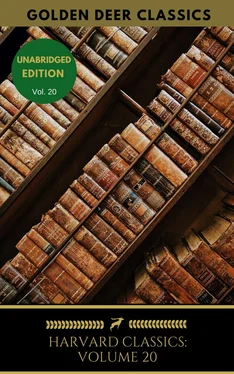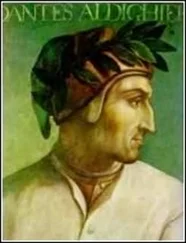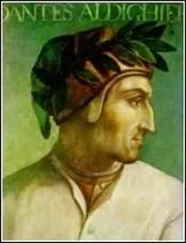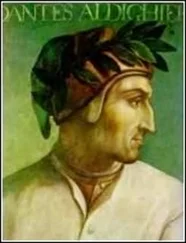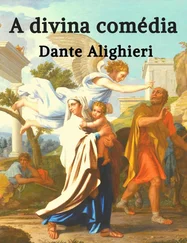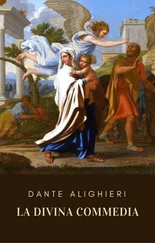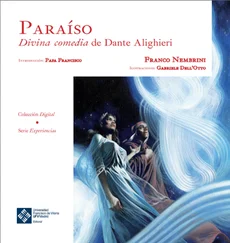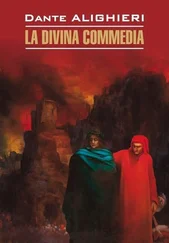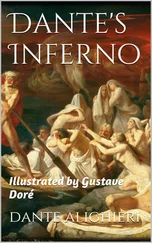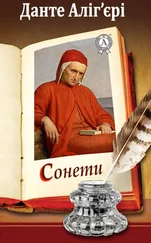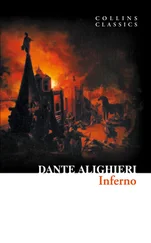Array Dante Alighieri - Harvard Classics Volume 20
Здесь есть возможность читать онлайн «Array Dante Alighieri - Harvard Classics Volume 20» — ознакомительный отрывок электронной книги совершенно бесплатно, а после прочтения отрывка купить полную версию. В некоторых случаях можно слушать аудио, скачать через торрент в формате fb2 и присутствует краткое содержание. Жанр: unrecognised, на английском языке. Описание произведения, (предисловие) а так же отзывы посетителей доступны на портале библиотеки ЛибКат.
- Название:Harvard Classics Volume 20
- Автор:
- Жанр:
- Год:неизвестен
- ISBN:нет данных
- Рейтинг книги:5 / 5. Голосов: 1
-
Избранное:Добавить в избранное
- Отзывы:
-
Ваша оценка:
- 100
- 1
- 2
- 3
- 4
- 5
Harvard Classics Volume 20: краткое содержание, описание и аннотация
Предлагаем к чтению аннотацию, описание, краткое содержание или предисловие (зависит от того, что написал сам автор книги «Harvard Classics Volume 20»). Если вы не нашли необходимую информацию о книге — напишите в комментариях, мы постараемся отыскать её.
1. The Divine Comedy, by Dante Alighieri
Also available:
The Complete Harvard Classics Collection (51 Volumes + The Harvard Classic Shelf Of Fiction)
50 Masterpieces You Have To Read Before You Die (Golden Deer Classics)
Harvard Classics Volume 20 — читать онлайн ознакомительный отрывок
Ниже представлен текст книги, разбитый по страницам. Система сохранения места последней прочитанной страницы, позволяет с удобством читать онлайн бесплатно книгу «Harvard Classics Volume 20», без необходимости каждый раз заново искать на чём Вы остановились. Поставьте закладку, и сможете в любой момент перейти на страницу, на которой закончили чтение.
Интервал:
Закладка:
Nor from his side my leader set me down,
Till to his orifice he brought, whose limb
Quivering express’d his pang. “Whoe’er thou art,
Sad spirit! thus reversed, and as a stake
Driven in the soil,”—I in these words began;
“If thou be able, utter forth thy voice.”
There stood I like the friar, that doth shrive
A wretch for murder doom’d, who, e’en when fix’d,
Calleth him back, whence death awhile delays.
He shouted: “Ha! already standest there?
Already standest there, O Boniface! [129]
By many a year the writing play’d me false.
So early dost thou surfeit with the wealth,
For which thou fearedst not in guile to take
The lovely lady, and then mangle her?”
I felt as those who, piercing not the drift
Of answer made them, stand as if exposed
In mockery, nor know what to reply;
When Virgil thus admonish’d: “Tell him quick,
‘I am not he, not he whom thou believest.’”
And I, as was enjoin’d me, straight replied.
That heard, the spirit all did wrench his feet,
And, sighing, next in woeful accent spake:
“What then of me requirest? If to know
So much imports thee, who I am, that thou
Hast therefore down the bank descended, learn
That in the mighty mantle I was robed, [130]
And of a she-bear was indeed the son,
So eager to advance my whelps, that there
My having in my purse above I stow’d,
And here myself. Under my head are dragg’d
The rest, my predecessors in the guilt
Of simony. Stretch’d at their length, they lie
Along an opening in the rock. ’Midst them
I also low shall fall, soon as he comes,
For whom I took thee, when so hastily
I question’d. But already longer time
Hath past, since my soles kindled, and I thus
Upturn’d have stood, than is his doom to stand
Planted with fiery feet. For after him,
One yet of deeds more ugly shall arrive,
From forth the west, a shepherd without law, [131]
Fated a cover both his form and mine.
He a new Jason [132]shall be call’d, of whom
In Maccabees we read; and favor such
As to that priest his King indulgent show’d,
Shall be of France’s monarch [133]shown to him.”
I know not if I here too far presumed,
But in this strain I answer’d: “Tell me now
What treasures from Saint Peter at the first
Our Lord demanded, when he put the keys
Into his charge? Surely he ask’d no more
But ‘Follow me!’ Nor Peter, [134]nor the rest,
Or gold or silver of Matthias took,
When lots were cast upon the forfeit place
Of the condemned soul. [135]Abide thou then;
Thy punishment of right is merited:
And look thou well to that ill-gotten coin,
Which against Charles [136]thy hardihood inspired.
If reverence of the keys restrain’d me not,
Which thou in happier time didst hold, I yet
Severer speech might use. Your avarice
O’ercasts the world with mourning, under foot
Treading the good, and raising bad men up.
Of shepherds like to you, the Evangelist
Was ware, when her, who sits upon the waves,
With kings in filthy whoredom he beheld;
She who with seven heads tower’d at her birth,
And from ten horns her proof of glory drew,
Long as her spouse in virtue took delight.
Of gold and silver ye have made your god,
Differing wherein from the idolater,
But that he worships one, a hundred ye?
Ah, Constantine! [137]to how much ill gave birth,
Not thy conversion, but that plenteous dower,
Which the first wealthy Father gain’d from thee.”
Meanwhile, as thus I sung, he, whether wrath
Or conscience smote him, violent upsprang
Spinning on either sole. I do believe
My teacher well was pleased, with so composed
A lip he listen’d ever to the sound
Of the true words I utter’d. In both arms
He caught, and, to his bosom lifting me,
Upward retraced the way of his descent.
Nor weary of his weight, he press’d me close,
Till to the summit of the rock we came,
Our passage from the fourth to the fifth pier.
His cherish’d burden there gently he placed
Upon the rugged rock and steep, a path
Not easy for the clambering goat to mount.
Thence to my view another vale appear’d.
Canto XX
Argument.—The Poet relates the punishment of such as presumed, while living, to predict future events. It is to have their faces reversed and set the contrary way on their limbs, so that, being deprived of the power to see before them, they are constrained ever to walk backward. Among these Virgil points out to him Amphiaraüs, Tiresias, Aruns, and Manto (from the mention of whom he takes occasion to speak of the origin of Mantua), together with several others, who had practised the arts of divination and astrology.
And now the verse proceeds to torments new,
Fit argument of this the twentieth strain
Of the first song, whose awful theme records
The spirits whelm’d in woe. Earnest I look’d
Into the depth, that open’d to my view,
Moisten’d with tears of anguish, and beheld
A tribe, that came along the hollow vale,
In silence weeping: such their step as walk
Quires, chanting solemn litanies, on earth.
As on them more direct mine eye descends,
Each wonderously seem’d to be reversed
At the neck-bone, so that the countenance
Was from the reins averted; and because
None might before him look, they were compell’d
To advance with backward gait. Thus one perhaps
Hath been by force of palsy clean transposed,
But I ne’er saw it nor believe it so.
Now, reader! think within thyself, so God
Fruit of thy reading give thee! how I long
Could keep my visage dry, when I beheld
Near me our form distorted in such guise,
That on the hinder parts fallen from the face
The tears down-streaming roll’d. Against a rock
I leant and wept, so that my guide exclaim’d:
“What, and art thou, too, witless as the rest?
Here pity most doth show herself alive,
When she is dead. What guilt exceedeth his,
Who with Heaven’s judgment in his passion strives?
Raise up thy head, raise up, and see the man
Before whose eyes [138]earth gaped in Thebes, when all
Cried out ‘Amphiaraüs, whither rushest?
Why leavest thou the war?’ He not the less
Fell ruining far as to Minos down,
Whose grapple none eludes. Lo! how he makes
The breast his shoulders; and who once too far
Before him wish’d to see, now backward looks,
And treads reverse his path. Tiresias note,
Who semblance changed, when woman he became
Of male, through every limb transform’d; and then
Once more behoved him with his rod to strike
The two entwining serpents, ere the plumes,
That mark’d the better sex, might shoot again.
“Aruns, [139]with rere his belly facing, comes.
Luni’s mountains ’midst the marbles white,
Where delves Carrara’s hind, who wons beneath,
A cavern was his dwelling, whence the stars
And main-sea whide in boundless view he held.
“The next, whose loosen’d tresses overspread
Her bosom, which thou seest not (for each hair
On that side grows) was Manto, she who search’d
Through many regions, and at length her seat
Fix’d in my native land: whence a short space
My words detain thy audience. When her sire
From life departed, and in servitude
The city dedicate to Bacchus mourn’d,
Long time she went a wanderer through the world.
Aloft in Italy’s delightful land
Читать дальшеИнтервал:
Закладка:
Похожие книги на «Harvard Classics Volume 20»
Представляем Вашему вниманию похожие книги на «Harvard Classics Volume 20» списком для выбора. Мы отобрали схожую по названию и смыслу литературу в надежде предоставить читателям больше вариантов отыскать новые, интересные, ещё непрочитанные произведения.
Обсуждение, отзывы о книге «Harvard Classics Volume 20» и просто собственные мнения читателей. Оставьте ваши комментарии, напишите, что Вы думаете о произведении, его смысле или главных героях. Укажите что конкретно понравилось, а что нет, и почему Вы так считаете.
